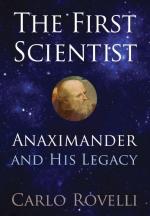|
This section contains 6,622 words (approx. 23 pages at 300 words per page) |

|
SOURCE: Allan S. Gnagy, "The Apeiron: Anaximander's Concept of the Endless Ground of Nature," in The Northwest Missouri State University Studies, 1975, pp. 1-19.
In the essay that follows, Gnagy presents a comprehensive account of Anaximander's central idea—the Boundless apeiron—and surveys the most influential interpretations of this doctrine.
Introduction
The problem with which this paper deals is the interpretation of the only extant fragment of the writings of Anaximander, a Greek philosopher whose dates are approximately estimated at 610-546 B.C. The fragment is of considerable interest to scholars of ancient Greek philosophy, because it is agreed to be the earliest verbatim quotation from that tradition, and, because of its brevity, it is open to a wide variety of interpretations. This variety will be evident to the reader, as will also be the fact that this paper attempts to add to the divergent opinions, by an emphasis...
|
This section contains 6,622 words (approx. 23 pages at 300 words per page) |

|


